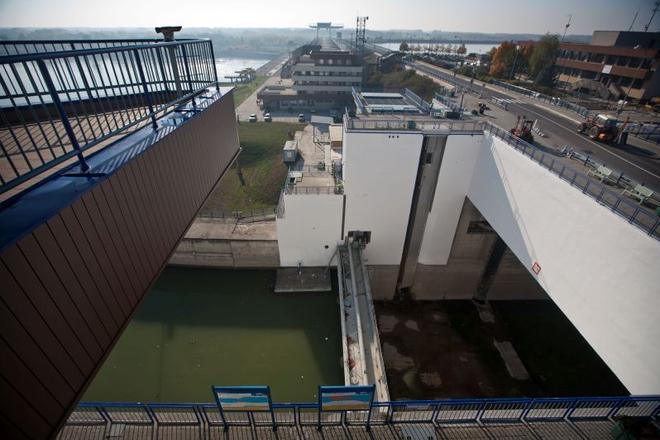SLOVAKIA has terminated the contract on the rental of the hydropower station Gabčíkovo to the dominant power producer Slovenské Elektrárne (SE), accusing SE of violation of the contract. SE denies the accusations and indicates that it may take legal steps. “After eight years of operating the Gabčíkovo hydropower plant by the Italian company Enel, we have decided, based on flagrant violations of the contract on operation of the Gabčíkovo hydropower plant, to terminate the contract as of today,” Prime Minister Robert Fico said at a press conference on December 4.
Fico argued that there are three reasons for termination of the contract.
“SE… refuses to provide us elementary data and information that would allow us to determine to what extent the distribution of profits from the hydropower plant is just or unjust for the state,” Fico said.
The second reason is, according to him, the fact that SE under the Italian management has not prepared any plans for refurbishment and general overhauls to this hydropower station. The third reason is that Enel has not fulfilled its duty to pay €5 million annually to its owner, the state-controlled Vodohospodárska Výstavba which manages the whole Gabčíkovo hydropower facility. This money should be used for maintenance of the waterworks related to the operation of the Gabčíkovo hydropower plant.
“The Italian Enel disputes this,” Fico said as cited by SITA. “It even requires from the Slovak Republic to pay it back €43 million.”
SE, in which Enel holds 66 percent and the state remaining 34 percent, denies all objections of PM Fico about the alleged violation of the contract.
“We stress again that we have always acted in line with requirements and agreements of the SE management,” SE wrote in its official stance published on its website in response to the information about the termination of the contract. “We are awaiting the official notification of the termination and we are not excluding taking legal steps to protect our rights.”
PM Fico is not afraid of any possible sanctions or international arbitrations.
“We think that we have the absolute right to terminate this contract and we think that any attempts of the Italian company Enel to get any damage reimbursement will be unsuccessful,” said Fico, as cited by SITA.
SE receives 35 percent of revenues annually from the sale of electricity generated by Gabčíkovo, but it simultaneously pays all the fixed operating and maintenance costs of the hydropower station, the company writes in its press release.
“We are sincerely surprised by today’s claims on the general overhaul of the power plant, since both shareholders of the company agreed at the last general meeting on November 21 on the performance of the general overhaul of the turbine two years ahead of schedule,” SE writes.
Based on this decision, SE has already started to prepare the appropriate documentation and informed the state company Vodohospodárska Výstavba and the Slovak Cabinet’s Office on the new plan for general overhauls of the turbine according to which preparatory works can be launched in 2015, according to SE.
In late August, Vodohospodárska Výstavba submitted a report to the cabinet, according to which SE has failed to observe the contract on the lease of the Gabčíkovo power plant.
“Slovenské Elektrárne has not fulfilled duties ensuing from the contract based on which currently several problems related to the operation of the Gabčíkovo hydropower plant have occurred, which have resulted in damage to our company,” Vodohospodárska Výstavba wrote in its report as cited by SITA.
According to the state company, the problem is payments by SE, who has to pay for the lease of the hydropower plant on the Danube. Vodohospodárska Výstavba even claims that SE may jeopardise the safe operation of the hydropower plant.
The hydropower station in Gabčíkovo with an installed capacity of 720 MW, which is part of a Slovak-Hungarian dispute, was excluded from the SE privatisation deal. Italian Enel acquired the 66-percent stake in SE in 2006 during the government of Mikuláš Dzurinda, paying €840 million for the package.
SE and Vodohospodárska Výstavba signed the rental contract on Gabčíkovo in March 2006, i.e. before the completion of the privatisation process, SITA wrote. Based on this, they obtained the right to operate Gabčíkovo for 30 years.
But already the first government of Robert Fico did not approve of this contract. In 2007, the government challenged the contract at court, with the aim to cancel it. In total there are 12 lawsuits at courts in this matter.



 The Gabčíkovo hydropower station (source: Sme)
The Gabčíkovo hydropower station (source: Sme)